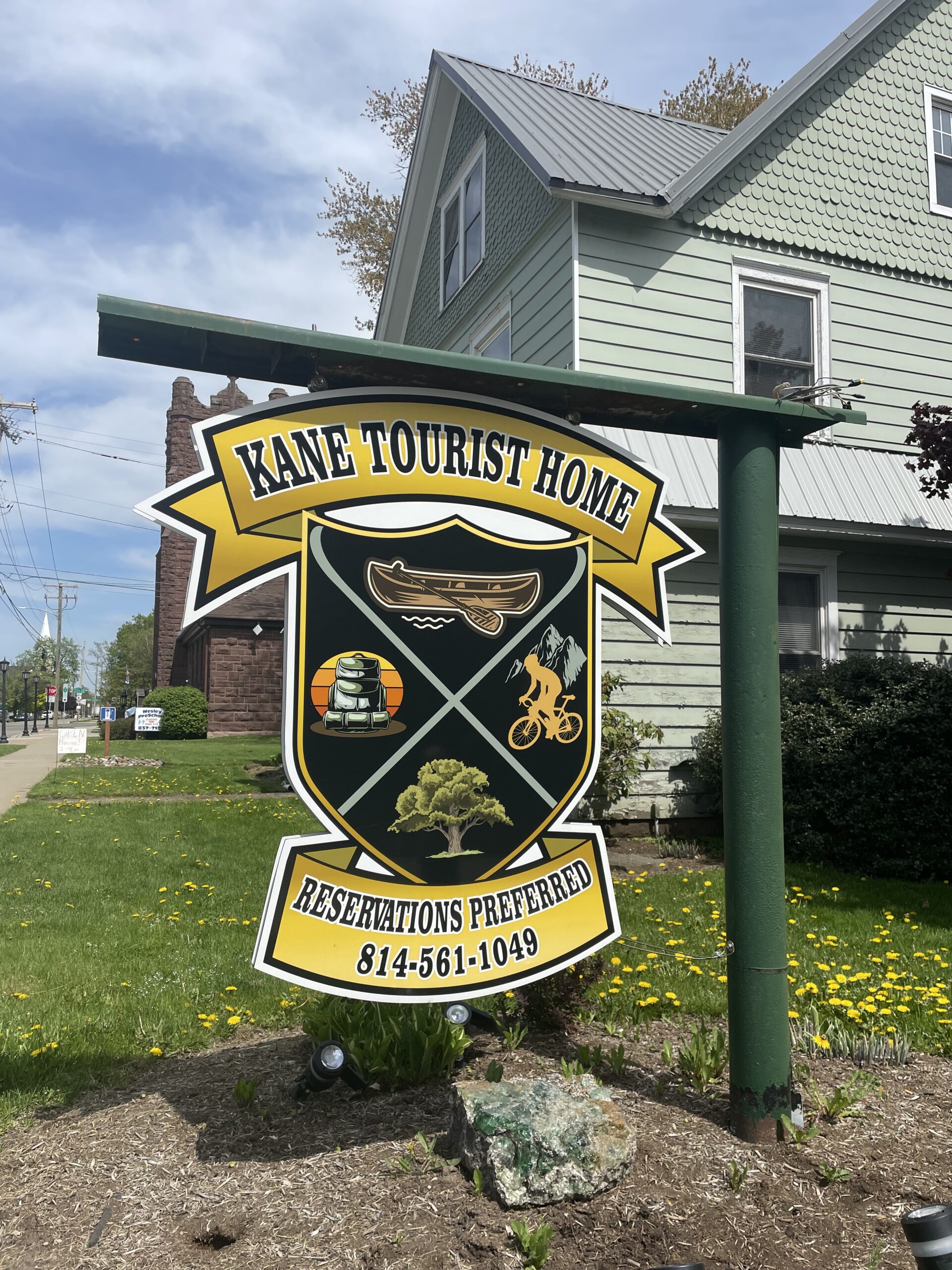Visit Kane
Kane is a blooming small Community in the heart of the Allegheny National Forest. There are outdoor adventures for all skill levels, shopping and dining in town, and a rich history to explore. For those who seek adventure balanced with relaxation, the area also offers a variety of beauty services. Set up an appointment to relax and leave feeling irresistible. Come check us out for yourself and see why we are a star in the forest.
Places to stay
Lantz Corners Get Away

Wolves Den

Air bnb

Kane is a wealth of culinary delights, with something to satisfy every palate. Are you interested in a meal where you can sit down and enjoy it in a welcoming atmosphere? How about something quick and delicious? Either way, Kane has the right foods for your meal or snack.
Kane is home to several businesses that offer therapeutic services and goods to help you relax and feel refreshed. Enjoy yourself indoors before you take in the scenic beauty of Kane – or reward yourself after adventuring.
Things to do

Outdoor Recreation and Events

Jake’s Rocks
Located on Forest Road 492 (accessible from Route 59), Jake’s Rocks offers biking, hiking, and nature viewing opportunities. The area has two picnic areas great for an outdoor meal surrounded by nature. The area is open during daylight hours year-round. The Jakes Rocks Extreme Mountain Bike Trail System offers a ride that suits novices and experts alike.

Family Drive-In
Summer evenings on the weekend mean movies and popcorn – enjoyed from your car. The Kane Family Drive-In has two screens and offers a full menu at the snack bar. The first movie starts at dusk.

Kinzua Valley Trail
The Kinzua Valley Trail is a seven-mile stretch along the banks of Kinzua Creek. The Tally Ho trailhead is located in Westline. The path welcomes hikers, equestrians, and biking enthusiasts during warmer months and skiers and snowshoers when the ground turns white. Enjoy serenity and adventure as you watch for wildlife.

Twin Lakes
This recreation area offers 10 acres to enjoy on foot or with a fishing pole. The area also offers two camping loops for those who want to stay a little longer, a picnic area, a pavilion, and a bathhouse.

Wildcat Park
This park offers trails for those seeking adventure and is a popular venue for events, including weddings and family reunions. The park also features pavilions and playgrounds. A fishing stream and a rustic building that houses a kitchen are also located on park grounds.

Kane Country Club
This public, 18-hole golf course perfectly blends the natural beauty and terrain of the Allegheny Forest with well-maintained greens and tree lined fairways to offer a scenic challenge for beginners and accomplished golfers alike. The casual and comfortable club house offers great food and a full bar to satisfy your post-game cravings. Click here to check out our website or call (814) 837-9491 to set up your next tee time!






